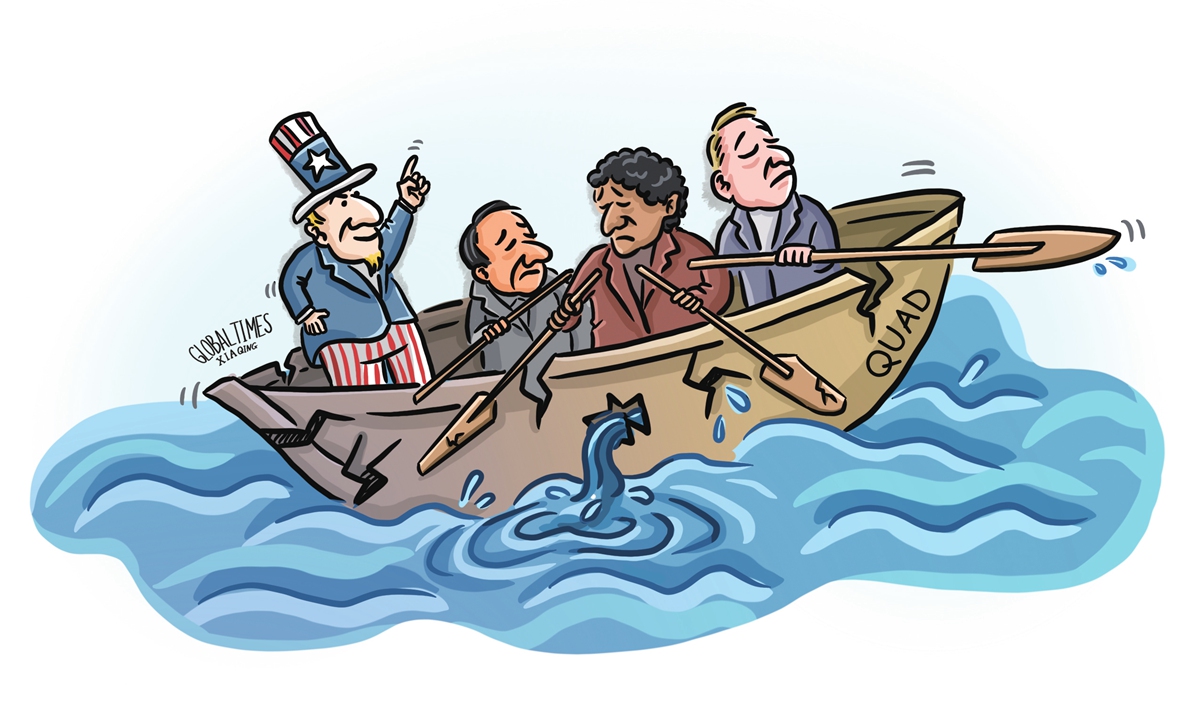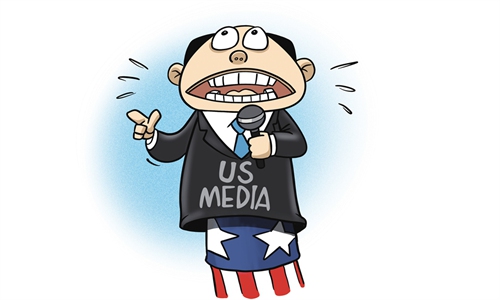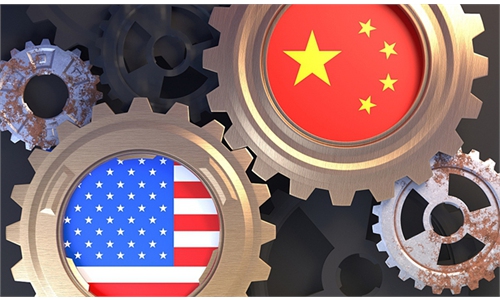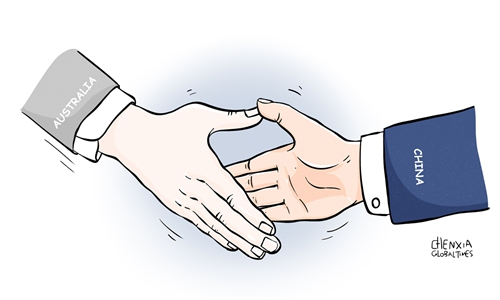
Illustration: Xia Qing/GT
When the US courted three of its allies and partners, namely Australia, India and Japan, to revive the Quad in 2017, their purpose was clear: to create a strategic bulwark against China. Now seven years have passed. It seems that this coalition is losing momentum, with an illusory ambition.
There are scholarly analysis questioning if India "defanged" the Quad. Some even put the blame on China for weakening Quad cooperation.
A recent remark came from former Japanese ambassador to Australia Shingo Yamagami, who was cited by Australian media outlets claiming that Australian Prime Minister Anthony Albanese has weakened the Quad as he repairs relationships with Beijing. He lamented Australia's reluctance to speak out against China.
Yamagami's comments were against the backdrop when China and Australia are trying to mend relations and bringing bilateral ties back to the right track. They indicate the predicament of the loose alliance of Quad: Although bound together in name, the different national interests of US allies and their different positioning on China determine that they will not simply follow the US.
Despite the US' tight hold on its Asia-Pacific allies, they are weighing the benefits they can get from the US by confronting China against the harms brought about by jeopardizing their relations with China. Japan, Australia and India cannot afford to have a direct confrontation with China.
The reason why Australia has chosen to repair its ties with China is that it has realized being a US pawn does not serve its interests, said Qin Sheng, a research fellow at the Center for Australia, New Zealand and South Pacific Studies, Chinese Academy of Social Sciences (CASS). He added that the Albanese government's re-engagement with China is a reconfiguration of Australia's national interests and a major readjustment of the country's diplomacy.
This is something Washington does not want to see as it will undermine Washington's efforts to contain China. When members of the US-led clique do not see eye to eye when it comes to China, cracks from within will emerge.
Take India as another example. To many strategists, India behaves more like an "outlier" rather than an "insider." From the very beginning, joining Quad ran contradictory to India's pursuit of strategic autonomy. In spite of Indian External Affairs Minister S. Jaishankar's pledge that the Quad grouping is here to "stay, grow and to contribute," what India has done is far from being a US obedient.
India's attitude has raised questions about the future of the Quad, with some strategists suggesting the formation of a new group called the Squad, consisting of the US, Japan, Australia and the Philippines.
This shift in alliances reflects the evolving security landscape in the region. An Indian scholar recently said in an interview with the Global Times that this could create an opportunity for India and China to start a dialogue on security that doesn't include the US, which would be a positive development.
While some may view these smaller alliances as a demonstration of the US' flexible approach to dealing with China, they actually highlight the fragile nature of the relationships between the US and its allies and partners.
Sun Xihui, an associate research fellow with the National Institute of International Strategy at CASS, told the Global Times that the US-led mini cliques are ultimately driven by the US' anti-China agenda, which may not align with the interests of all its partners.
Each country involved in these alliances has its own unique relationship with both the US and China, based on their national interests. If a country feels that its national interests are being compromised by US policies, it is likely to push back against such actions. With countering China as their objective, small cliques created by the US are fragile.
The author is an editor with the Global Times. wangwenwen@globaltimes.com.cn




